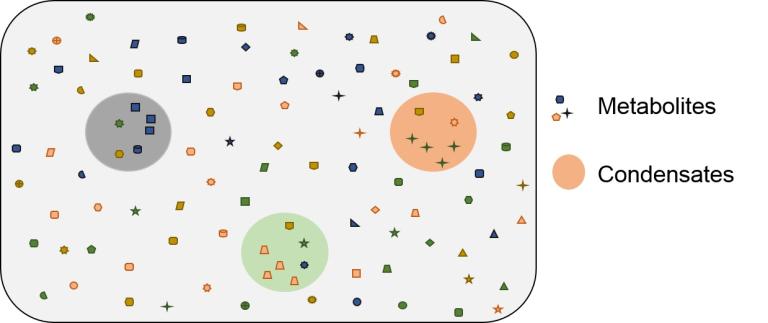Sabareesan Thody, Ph.D.
Postdoc, UT Southwestern

Biomolecular condensates are micron-scale compartments that functionally organize the cytoplasm with specific sets of biomolecules. Recent studies on the composition of these biomolecular condensates suggest that the primary components are proteins and nucleic acids. However, the presence of other biomolecules such as amino acids, sugars, metabolic intermediates, and enzyme co-factors in condensates has not been explored. My work aims to understand the enrichment and depletion of small chemical molecules in biomolecular condensates. I have developed an assay to quantify the partitioning of natural metabolites into biomolecular condensates using a combination of mass spectrometry and cellular imaging. With four different biomolecular condensates, engineered SH3-PRM and SUMO-SIM condensates, the P-body component protein Dhh1, and cGAS-DNA, I observed specific partitioning of certain metabolites, with partition coefficients ranging from 5-100. I also observed that large sets of metabolites are specifically excluded from these condensates 2-10 fold. My immediate future goal is to understand the partitioning of these molecules based on their physical properties and binding to the condensate components, or order to develop a predictive model of the metabolite composition of biomolecular condensates. In the longer term, I hope that this study will aid design of biomolecules that target specific biomolecular condensates. Ultimately I hope to develop a complete, quantitative understanding of the biochemical properties and resultant functions of biomolecular condensates.